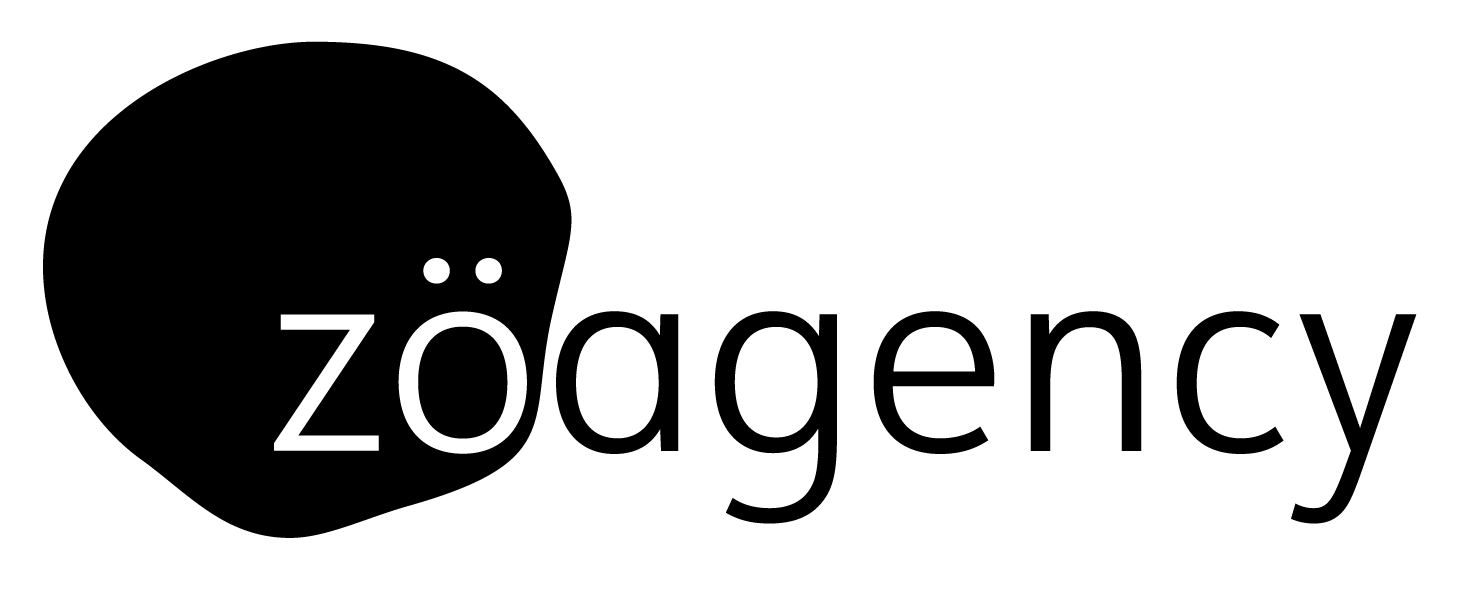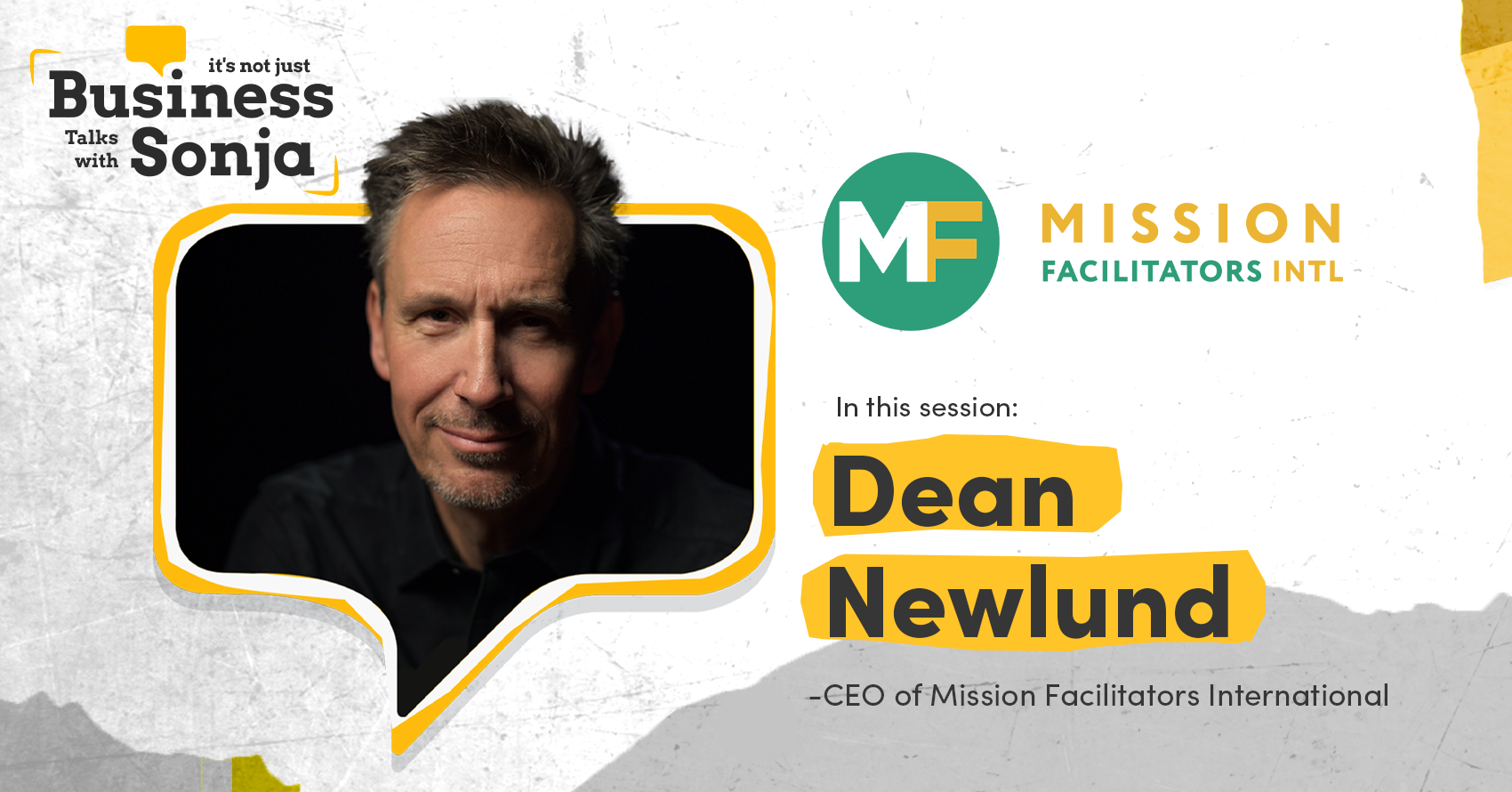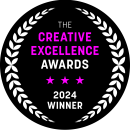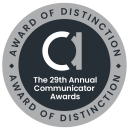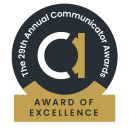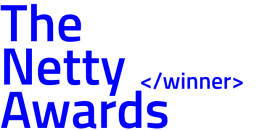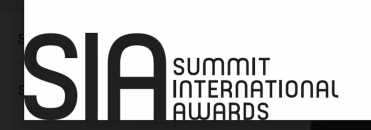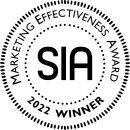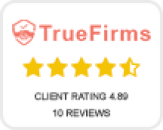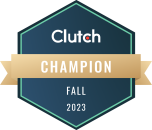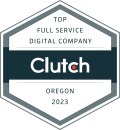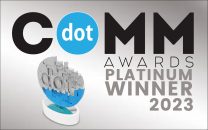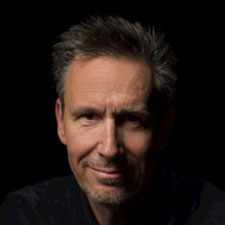
Dean Newlund is the Founder and CEO of Mission Facilitators International, a boutique training and development firm. The team at MFI helps organizations become more connected to their purpose and their people. Founded in 1992, MFI is home to more than a dozen professional coaches, trainers, and strategic planning facilitators. Unlike most other firms where consultants work with their clients, MFI members work as a team in facilitating growth for leaders and organizations.
Dean Newlund has over two decades of experience in executive roles. Previously, Dean was President of ASTD Phoenix and the President of Quantum Leap Unlimited. He was also an Adjunct Professor within the Faculty Network Group of the Thunderbird School of Global Management.
Here’s a glimpse of what you’ll learn:
- Dean Newlund describes how he pivoted from pursuing an acting career to diving into consulting business leadership
- Why are so many people trying to find new employment?
- Seven areas of focus for retaining employees
- Why does a CEO need to have a brand?
- Lessons Dean learned the hard way
- How to find a better work-life balance
In this episode…
According to a study by Gallup University, nearly 50% of all employees are actively looking for other work. How do you create a company where people want to stay?
Dean Newlund specializes in making companies “sticky.” Company culture has to be top-of-mind for the leadership in order to retain employees. Some key factors include competitive wage and benefits, onboarding process, training, flexible schedule — just to name a few. How do you know where to start?
In this episode of It’s Not Just Business Talks with Sonja, Sonja Anderson sits down with Dean Newlund, Founder and CEO of Mission Facilitators International, to discuss building a company culture that retains employees. Dean describes seven focus areas for CEOs, why a CEO needs a brand along with the company and the lessons he learned the hard way.
Resources mentioned in this episode:
Sponsor for this episode…
This episode is brought to you by zo agency, a tight-knit team of online and offline marketing pros.
At zo, we serve as the marketing department for small to mid-sized businesses.
We know that marketing and advertising can be demanding and time-consuming — that’s why we make the process so easy-breezy that you don’t have to sacrifice precious time to get the results you need.
To learn more, visit zo.agency or call (541) 633 4725.
Episode Transcript
Sonja Anderson 0:01
So welcome, Dean. Dean Newlund is the founder and CEO of mission facilitators International, a boutique training and development firm based out of Phoenix, Arizona. Although I know you’re not there right now, with the sole purpose of helping organizations become more connected to their purpose and their people. So far, so good. Founded in 1992, MSI is home to more than a dozen professional coaches, trainers and strategic planning facilitators. Unlike most other firms, where consultants work with their clients, MSI members work as a team in facilitating growth for leaders and organizations. Holy moly. Good job, Dean. And it’s pretty good. Yeah, that’s the end of the show. We got, we got it. Wow. So tell me a little bit about this Dean. And you know, what kinds of companies or people do you work with? Hail that I just pronounced?
Dean Newlund 2:56
Yeah, introduction. Well, in the 20, some odd years, we’ve been around, we’ve been quite fortunate to work with a whole cacophony of different size organizations, some of them very large, like Exxon Mobil, some of them International, like Marriott, some of them very small, like powers of automation that you know very well in Bend, Oregon. And, you know, so you would say, well, we’re not really focused on any particular industry, but we do seem to have a sweet spot for healthcare. And those organizations that have deep dive stupid, smart people who sometimes are so smart in their their science and their skill that they may not always be so good about leading teams and being able to be strategic thinkers, and motivators of their vision. So we seem to do really well in that space as well to help help those really intelligent people get better at coordinating and leading and coaching and, and setting vision for their teams and their companies.
Sonja Anderson 3:56
How did you do and if you don’t mind me asking how did you get so good at doing that? That How did this all start? I mean, were you wake up one morning and go You know what, I’m gonna work with Exxon Mobil. That’s not how it began. No,
Dean Newlund 4:07
I mean, it’s been constant working relationships, just all the time. But if the question is how do we get to those companies? That’s one thing how did I get started in
Sonja Anderson 4:17
this started? Yeah, I’m curious about your your, your this how this matured from young Dean to today working with high level clients like that.
Dean Newlund 4:29
Well, young Dean was an actor and thought that’s what he was going to do when he grew up. And he was okay at it. But I think young Diem soon realized that he was probably a better teacher than he was, you know, a sword clad carrying Romeo. So after a while, I beg to question that. It just became pretty clear also, I was tired of living on food. As an eating Top Ramen and it was somewhat of out of necessity that I need to do something else. But I was also fortunate at a particular time in my life when I got introduced to this whole thing called coaching, which back in those days in 92, or so was still a phrase, relegated and, and used to describe sports. And so after going through a fairly exhaustive training program where you had to be certified in front of your peers, I went, Okay, I think that’s what I want to do. So it was a particular time in my life when I was going through a big personal change, getting out of a marriage, and I could all of a sudden move wherever you wanted to move. So I moved back to Seattle, Washington, and started up this little firm thinking, hey, if it doesn’t work out, I can always go back to wait tables, and 29 years later, I’m not waiting tables still going. Okay. It’s but it just kept me building and building, you know, and we, we found our way into really big companies. Now, this is a short story. But yeah, Joanne and I, my wife and I were trying to get into these organizations like Microsoft and Hewlett Packard and Boeing and so forth. We never get past the Secretary and we sort of lucked upon. It was really Joanne’s relationship with somebody over the Museum of Flight in Seattle who had this million dollar, high tech simulator of Michigan trolling a spacecraft that was there to teach kids about science and technology to help them become more interested in that area of out of the era when we had the challenger explosion and went up and didn’t come down. So sure, he didn’t have anybody to do corporate events, because a lot of these people were sending their kids, but they were going this would be fun, we should do that. So long story short, we develop some programs and, and we got very fortunate to have the museum fit sponsor a bunch of events, and boom, all of a sudden, we got all sorts of press around TV and radio, and Wow, nice. We got we got a lot of good, huge shot in the arm. And that got us into the warehouses and all that. And once we got embedded there, then we just kept developing more programs, we expanded that program, the challenger center program eventually tapered off. And now we had just this juicy, wonderful, rich, enviable client list that we’ve been able to stay connected to. I know it sounds like Christmas, right? Well, yeah, that’s just very briefly, but relationships is always the key thing, you got to do good work, you got to be fast, you got to be as much a coach but also a consultant, you can’t hide back on what your point of view is, you have to have a point of view, we have to tell people the truth. But if you if you keep doing that, your name gets around, and all of a sudden, you’re you’re still here after a while
Sonja Anderson 7:42
your reputation is great. And I know that because and also I happened to note, since knowing you for a few years, they keep coming back exactly right. The you have super served a great many clients that I already know about. But I mean, is it really still great out there? I think you had mentioned something before we kind of got on the show here that you’ve started seeing a shift, and I’d love to hear about it.
Dean Newlund 8:04
Yeah, thanks for that tea up there. So the the shift that I was just made more aware of recently on one of our team calls is something that’s called the Great resignation. And it’s unprecedented in our lifetime. I mean, there’s always been down economies and so forth. And there’s always been a time when say back in oh nine, the power shift went from the employer back to the employee. And all of a sudden, we could say, All right, now we’re going to, you know, employees now have a chance to go wherever they want to go once the economy came back. This is different. You know, according to Gallup, and other organizations that are doing studies on this, there’s somewhere around give or take about half of all employees right now are actively looking for other work. No kidding. Yeah, it’s not it’s not 20% is half, you know, it’s not just like, I’m thinking about it. But no, I’m actively looking for something else. And that’s not. And so any manager out there that’s listening to this, whether it’s a small company or a large company needs to realize there is a pretty good chance that a fairly sizable number of people in your own team very well could be looking for something else. And that’s a scary thought. But it’s also a very interesting way to re emphasize the basics around retaining and keeping people and so I knew that we would have this podcast, I kind of came up with a little thing I want to hear him through. Yeah, absolutely. I’m still just trying to be brief on this. But
Sonja Anderson 9:27
I’m still gasping about the fact that half my staff could be looking but I really don’t believe that I believe.
Dean Newlund 9:34
But it’s a ticket as a whole. You think of the number of people some organizations are going to be 80% some is going to be 20%. But you have to sort of take into the the idea that even if you have a strong team, how can we make it better? Because even with a company as strong as yours, you’re always going to want to make sure that you don’t get too complacent. You always want to double down on how do we make our company sticky. You know People want to stay. Yeah. So I think number one is know your competitors, meaning like your pay benefits and culture, what’s going on out there. It’s almost like when you go to Zillow, we can get an automatic read on what your house is worth relative to your neighbors. And it’s sort of a metaphoric way, we need to get really much more accurate and timely data around what other companies like us are paying, and giving their employees with benefits and what’s their culture like, so we can then speak to that in interviews, too, I think we have to have a much faster onboarding, we have to get people in, and we can’t wait for a long series of committees to make decisions around who we should hire, we need to get those things down and dirty and done. You know, let’s not wait, let’s get those people in. And once they’re in, we have to make some really good impressions as fast as possible. Because it’s like you walk into a restaurant. And if you don’t like the look and feel of the restaurant, you’re gonna turn around, sure, a lot of people are taking offers and signing on the dotted line, and then leaving very quickly. And so that period of the first few weeks is really important, too, I think that we need three, we need to be doing a lot more training and career pathing with people such that you’re going to be hiring people who maybe two years ago, you have never hired because they weren’t ready. Now you have to take them because there’s nobody else. Sure. And the people that are currently working in your company, are so straight and stressed and burned out that you’re now afraid of losing them. So I think that training and career pathing is really important. I think number four, I would say really call out successes in people making sure you connect them to progress as fast as possible, and also make failure an okay thing. And what what are the lessons learned that we could come up with as a result of failure? flexible scheduling, number five, if you mandate, everybody has to be working from home or everybody has to be working at work. The stats seem to say that your engagement level goes down. But if you give people some flexibility, it goes back up again. So flexible scheduling is really important. I think that the CEO, number six has to be much more out there and branded, because people want to join companies because of the brand of the CEO, not just the brand of the company. And then let’s see here, there was something else about Oh, retention, oh, I think you need to be doing a lot more. Number seven would be a lot more surveys around retention. How are people doing with engagement? What is the what is the mood? Like? What’s the tone, like? So probably more frequent engagement surveys. And last, when you do lose somebody, make sure you have an exit interview and you capture, why did they leave? And usually you have to have an external person to do that not your own company, because they don’t want to tell you the truth, but they will tell this other organization. So anyway, I guess that’s just a quick rundown.
Sonja Anderson 12:52
Thank you. I’ve got a couple questions. Of course I do. But one of the one thing I was wondering is, um, you mentioned about the CEO, being sort of the leader as he needs to be a little bit more branded. And I know that you went through this yourself not long ago. You’re You’re both the brand and also the leader of the company, but your company had done some rebranding. My question is, what size organization does this apply to you? Because, you know, you know, if it’s, if it’s a small organization, like, a ma Pastore, that doesn’t really relate, but you’re talking about larger organizations typically. How does that fit for you? Yeah,
Dean Newlund 13:25
I don’t know what that I don’t know what the cut off is Sonja on that I don’t I don’t have a feel for that. I think that some of it has to do with the cycle of the company’s growth, some brand new upstart, the CEO is going to need to be a tremendous visionary and a storyteller. And so the brand is going to be have to be around that, you know, if you are more established company, and you’ve been your past those growing pains, and you’ve made some successes now now it’s about maintaining what you’ve been able to build. And I think there’s a different brand around that. But I don’t know. At what point do you need to start branding the CEO? I don’t know. I just think that in some ways, this is just me, you’re the expert when I am in this, but I think that everybody’s a billboard for themselves and for the company, and we need to take that seriously. even going to Starbucks or whatever, you realize you’re going to bump into somebody that Yeah, I bumped into somebody a couple of nights ago at a concert, you know, you know, you’re just there, you always will find people who know you and I think you have to be cognizant of that.
Sonja Anderson 14:27
Sure. And were you in your rainbow pants? I mean, did you get caught busted dancing or,
Dean Newlund 14:31
you know, I was dancing. And luckily it was it was a friend that was also dancing. So excellent. But to that point, though, you do need to think, you know, I’m not saying go to the extreme, but just know that you’re you’re always representing yourself, your family and your company. And I don’t think that’s something that is exclusive just to large organizations. Well,
Sonja Anderson 14:53
I love this list. I’m actually going to take it seriously too hard, especially as the CEO of my organization, but I’m wondering It sounded to me like prior to that. You’ve had a pretty wonderful life. I’m looking at the picture behind you. And I know that a snapshot of one room in your house, and it’s gorgeous. You have had a really, you know, excuse my language, but kick ass life. But was there ever a time where you had a bad mistake that you learned a lot from? I’m not talking about a previous marriage, I’m talking about just like, you know, rock bottom, like, oh, and you and you probably messed up, but that you were able to turn a corner from I’m curious if, if you just kind of hit the jackpot and rode the wave?
Dean Newlund 15:33
No, no, not at all. I think the thing that has been a blessing in many ways has just been my, my work ethic. And I just work pretty hard. And I love what I do. But there’s I think more than anything, Sonja, it’s probably been the blind spots. You know, that that later? I see. You know, like, when I first started, I just didn’t think much about finance. And I didn’t think much about how to manage the business and the budget and so forth. That just sort of came much later. I’ve made all sorts of stupid mistakes. I’m sure that I just we were just dumb. We just didn’t know we didn’t, we didn’t have anybody in my family who knew how to build a business. I didn’t go to business school, right. You know, I learned I knew how to coach I was sort of smart in some ways. And I learned, I learned most of it by doing I learned most of them to my clients by frankly. So I think those blind spots, I don’t know if there’s anything that really stuck out, jumps out at me. I think it’s the missed opportunities, you know, that I should have taken. Like somebody once wanted to have me write a book, and they were going to help me read a book on life purpose work. Wow, passed on it, you know, wow, we, we found another man, you met a man What kind of a manuscript of, of somebody and I thought this was really good stuff when I actually started playing around with it. But then later, it became the movie, The Secret, you know, felt like, Wow, we had that we had our hands, right. All you know, it’s, I don’t know why they did anything really stupid. I mean, I’ve hired people that were, I mean, I’ve got I did have somebody on my team for a while that I intuitively knew was the wrong fit. And because I was scared to have that difficult conversation, I kept him on much too long. You know, I know historically, I’ve told you this, right. And it blew up, you know, the person made a huge humongous mistake, we lost a very large centerpiece client that took about two and a half years to get him back, which we do not have him back. But it was very costly, very, very painful. The biggest mistake there was, you know, you have to handle the performance issues soon. Not saying it doesn’t matter, Coach support, give them flexibility. But at some point, if you got to let somebody go to God, let him go. Otherwise, they’re gonna hurt you and hurt you’re hurt your company. And that was your big slap in the face.
Sonja Anderson 17:48
Yeah, you won’t do that again. I can. No. And I mean, I like that you I know, I happen to know about you, Dean, that one of your, you know, Hallmark sentences or words is intuition. And I know how you’re just saying right now, I had the intuition that I needed to let this person go, but I couldn’t do it, because the big conversation was just too hard. But intuition is kind of one of your I mean, tell it tell people about your podcast, because it’s called. It’s called the business of intuition. He
Dean Newlund 18:14
really started TED talk that I did about two years ago on the same topic. And I guess why is that something that’s important to me, I think that we have put a lot of emphasis around the conscious knowledge that is data focused, which in and of itself is just certainly fine and dandy, but we are not talking about diversity inclusion, we’re not including the intuitive thought into conversations. I can’t if I’m not a subject matter expert, I can’t participate. And that there’s there’s so much other pattern recognition, so much other creative ideas that can come through this little thing called intuition, that I really believe it’s the one of the most important human characteristics that cannot be replicated by AI. It’s something that you know, when the when the machines finally take over the last thing we’ll take is our ears our intuition, right. I think it is innate, human. And everybody knows it, this podcast that they have now had 80 different interviews. Everybody knows what it is everybody that has it experienced with it. But I think it changes cultures when you allow for and you have the courage to speak about things that you might be called intuitive. You may not call it to the team. Hey, I’m going to be intuitive here. I call it I got a hunch I got I’m barking up this tree. Tell me if I’m going up the wrong one. You might give people a way to hear what you have to say without it sounding too. wishy washy. But yeah, you know,
Sonja Anderson 19:48
yeah. It’s something that I also sincerely believe in. And I think we have some similar mentors around this as well. I mean, do you want to give a shout or name a couple of the people that have inspired you? Is there any One that you just think the world over, if you could get them on your show, who would they be?
Unknown Speaker 20:04
Wow, Joe dispenza would be nice. Hey, Joe. I mean, when you’re ready, yeah. He’s just a tad busy.
Dean Newlund 20:16
No, I mean those studies great. I think is, I think there’s wonderful though, too, obviously, I, I listened to him, I listen to other people. There’s a lot of noise out there. Sure. There’s, there’s so many people who are coaches and are trying to be a part of this human development movement. And the challenge is to find your own voice in a way that doesn’t sound like everybody else’s, because we’re inundated with so much choice of ways to have our attention taken. So we got to stick out. And I think it goes back to your work and marketing and branding is being able to have that clear message and I’m still working on it, I’m still trying to, you know, hone it in and get better at it. But I think authentic authenticity, and coming from your heart. And speaking from that space, is one way you can cut through the noise. Absolutely couldn’t agree with you more. And
Sonja Anderson 21:13
so you had mentioned earlier, you’re and I’m not going to keep you much longer, but your work ethic, which is one of your strengths. And I do know that about you? And I was curious, what does that look like? Does that ever look like working 80 hours a week? Because you can’t down? Or are you pretty good? I mean, what does your day look like? What are your work work ethic and your daily rituals? Like to keep being sane and doing great work?
Dean Newlund 21:35
Oh, well, um, for a while there, because I think that the work ethic that I probably had for a while was based out of panic, will this will this thing survive, I got to support my family, you know. And so it was that kind of that sort of a fear based work ethic, I don’t think that was very healthy. My wife finally said, we are taking two week vacations a year. And that’s just yet and so that was a really good thing. After a while, I just, I realized that my life is not just about what I’d love to do, but the off time and so one of the things I try to do every day is get up and take the dog for a walk, go to the gym, and then have a couple hours basically to myself before I even start the day. That’s been really helpful.
Sonja Anderson 22:21
Yeah, no emails, no phones, you don’t even look at it, you completely take your time? Well,
Dean Newlund 22:26
I can’t say don’t look at it don’t act on anything. I don’t. Often at times, they don’t but, but it’s like, I need a couple hours before I get up into my office and I start working, you know, Grant has been really, really helpful. And we’re doing a lot more vacations and taking time away. And, you know,
Sonja Anderson 22:45
do you pin it down to the end of the day? Is there a dinner time? Like, yeah, I asked, because I talked to a lot of my colleagues and other clients. And one of the biggest challenges, especially at a certain level, of course, the CEO being one of them, is you turning it off at the end of the day and not turning it on first thing in the morning and being able to have a realistic work week and still show up for your for your clients? Do you feel? Are you on a scale of one to 10? Where are you with that? Are you feel pretty solid about your? Let,
Dean Newlund 23:15
um, I think I’m pretty good about that. You probably asked my family about that. But overall, I think I’m probably the best that I’ve been in my life, you know, and it doesn’t mean I have to sort of work hard, but I’m not. I’m not frenetic. And I know that you even saw me at a frenetic time, like last year was something around that period of my life. I don’t know what it was probably I was still in the the wave of the COVID Panic of the world, right? Yep. And like, I didn’t know whether we would survive, you know, I didn’t know I was scared. Every time I was going to get on a phone call with one of my CEOs. And go, could this be one that tells me that they’re going to drop us? I mean, that happened for several weeks and months, and it was scarier than crap. And I thought well, alright, so I started making contingency plans and paying my mortgage down as fast as I could, you know, just doing all sorts of stuff. So then it kind of created in me, which isn’t worth it, right. But it created a frenetic energy that I just had to Haha, you know, you’re not alone.
Sonja Anderson 24:22
I think that’s probably true of 95% of people through last year, myself included, I don’t know that I think I kind of zoned out a little bit more just kind of, well, whatever is going to be, you know, will be, you know, it’s all good. Whoops, sorry about that. Um, but so how did you change that? How did like what shifted? Was it just that business shifted? COVID kind of seemed like it was alleviating? or How did you change that? And I asked for personal reasons because I’m really trying to get to that point myself that two hour morning would be amazing. And I would love to do it and I’d love to be able to put it down pretty comfortably at the end of the day, and I know, I’ve asked colleagues, I’ve asked clients at that level, and a lot of them would really like to know, how do you turn the tide of working, you know, 80 hours a week to having a pretty nice ritual rhythm work ethic, but without crazy,
Dean Newlund 25:20
I think it’s part of it is a relaxation of trust in your people. And, and not have to have them do the work the way you would do it. You know, my vision for my life right now is to give away the work to other people. And and see them have the fun that I’ve been having and allow me to do other things, you know, writing, for example, but it’s it’s kind of like it, you know, it kind of gets into this existential spiritual question is like, are you okay? Are you okay? As a person? Are you are you do you have trust in yourself? You’re going to make it? Yeah, you know, can you get through the week in the way in the end? Are you alright? And I think that if you can include other people in your world and build bridges, you begin to realize that you’re going through life as a community, not as an individual being relaxed back into that like, and I think it’s been challenging because we’ve got an increase of very passionate opinions going on right now in our little world that pits one person against another and we’ve forgotten the the art of listening, and of seeking to understand going back to Stephen Covey. And somehow thinking that understanding means agreement, and it doesn’t, it just means I understand you. And we don’t seek to understand anymore. We seek to defend, we seek to ridicule, and it’s, that’s the hardest part right now, for me personally, is, is seeing that and trying to bring conversation, whatever the conversation is, whether it’s COVID, whether it’s politics, whether it’s something that accompanies, can we get back to that?
Sonja Anderson 27:08
Yeah, 100% bingo, I can’t, I can’t think of a better place to actually end this now, Dean, because you are an inspiration. And I have a little outro here that I’m going to read and for the people listening are hoping to snip this piece out. We’ve been talking to Dean Newlund, who is the founder and CEO of mission facilitators and Dean where can people learn more about you?
Dean Newlund 27:32
Well, the normal places like LinkedIn, you can also find the podcast on our website. Our website is MMI leadership, calm. Social media, certainly, but you know, we have a blog
Sonja Anderson 27:46
hunkered down it’s Dean and e. W. Liu and the for those looking to hunt him down, he can be found.
Thank you so much for being on my podcast. This was a blast and also thanks for your inspiration. You’re very welcome. Anytime.
